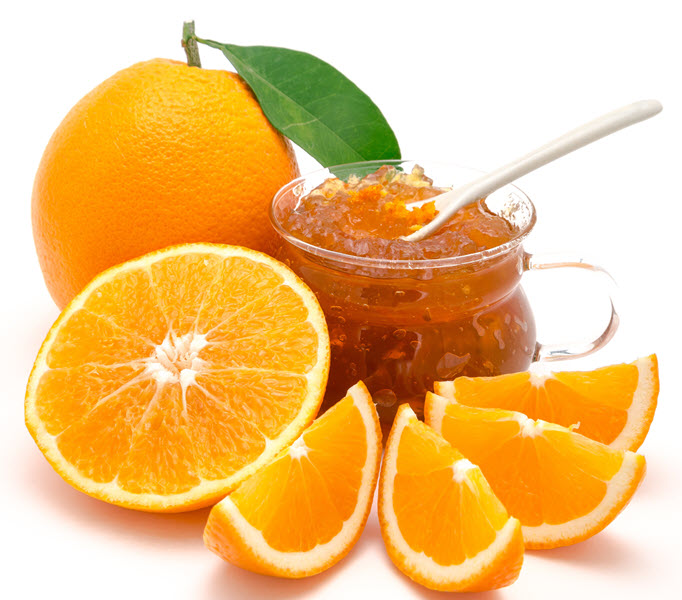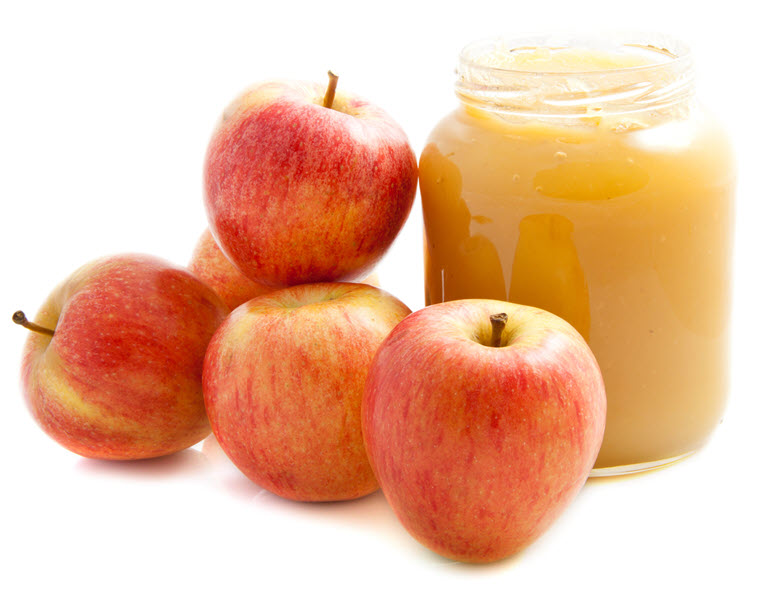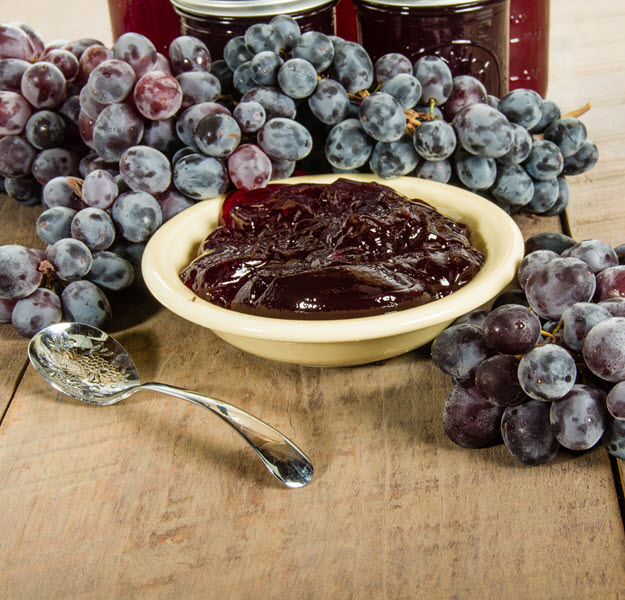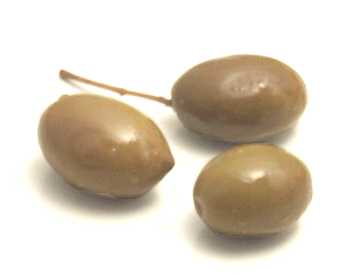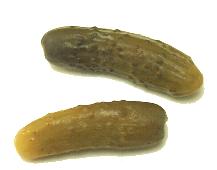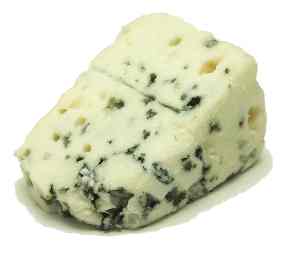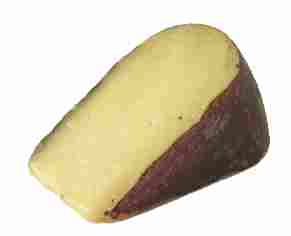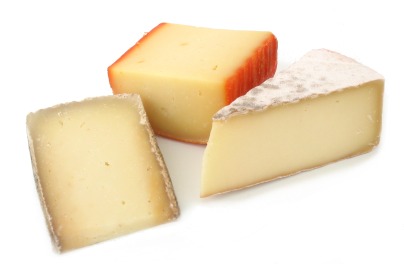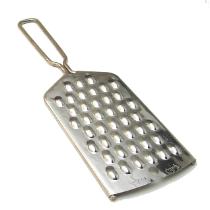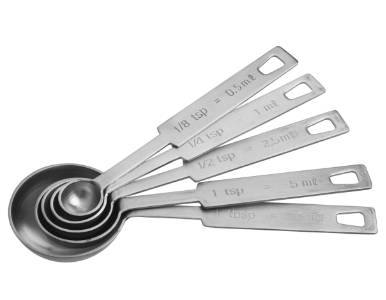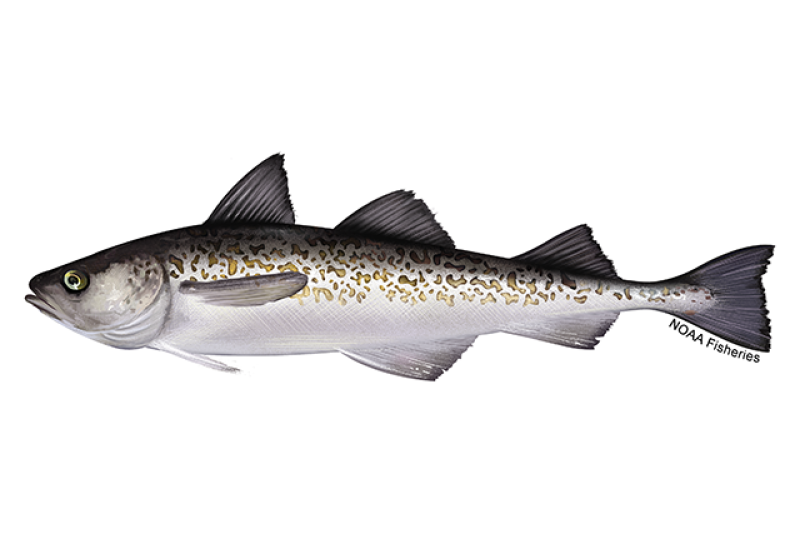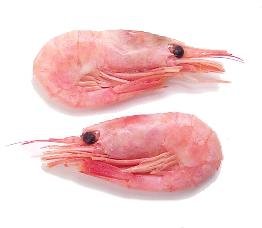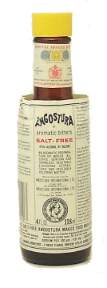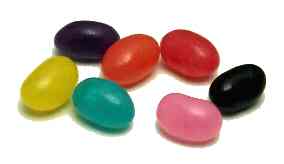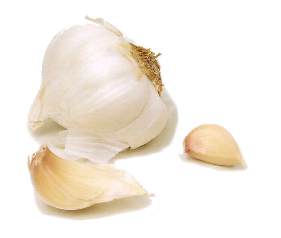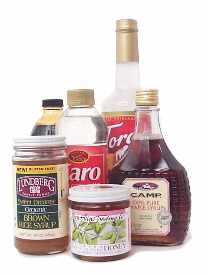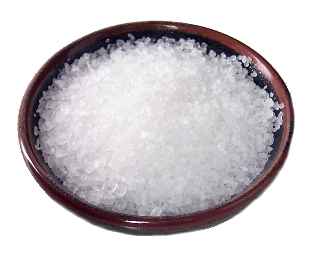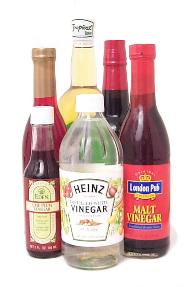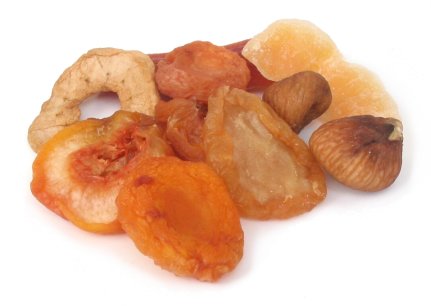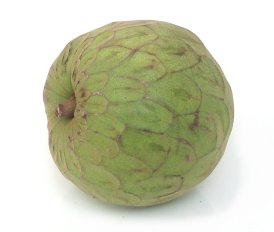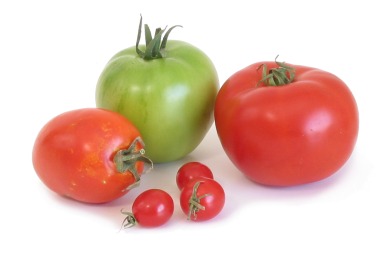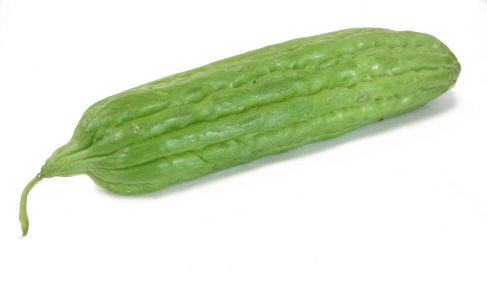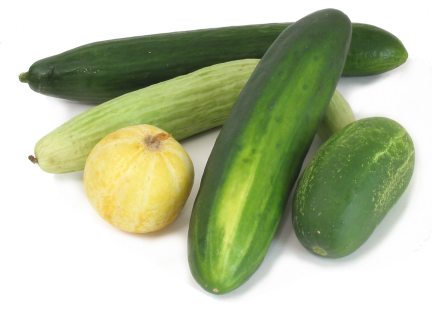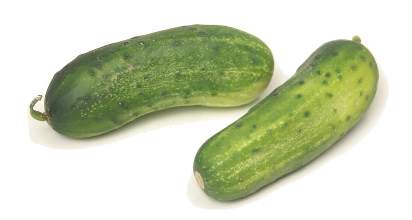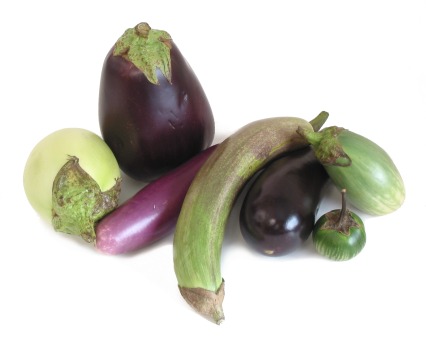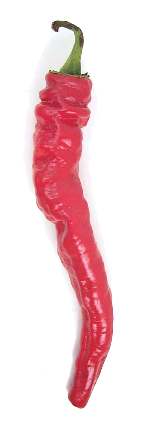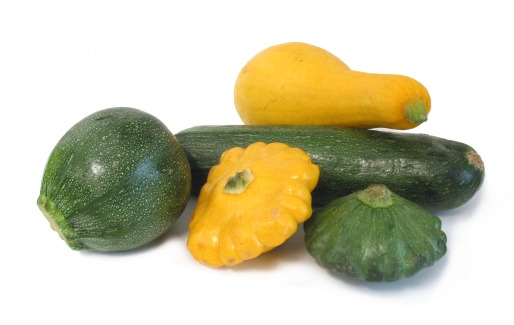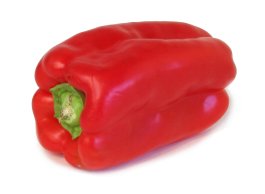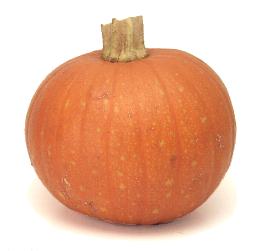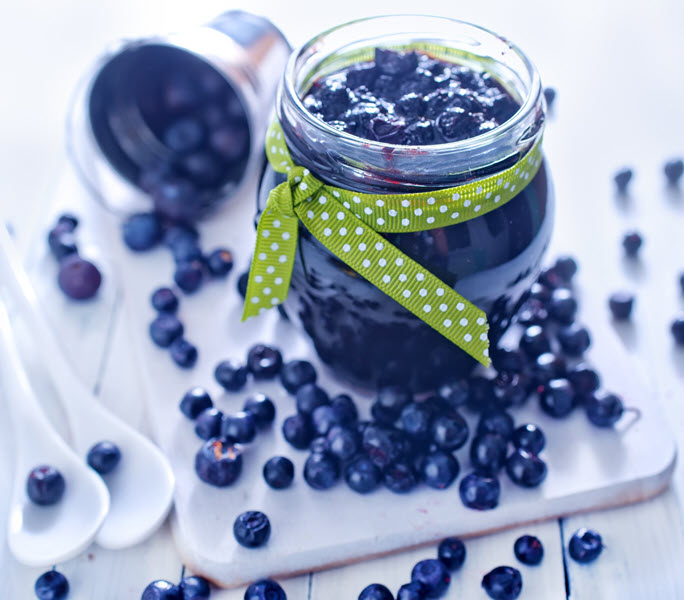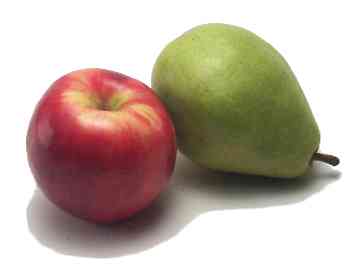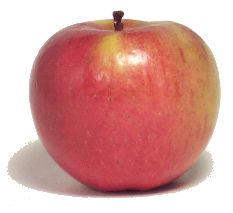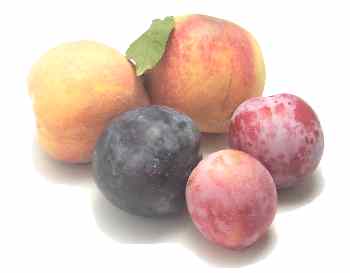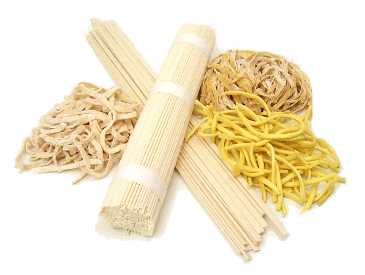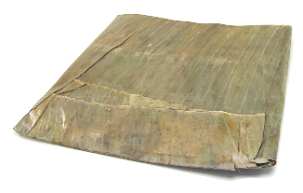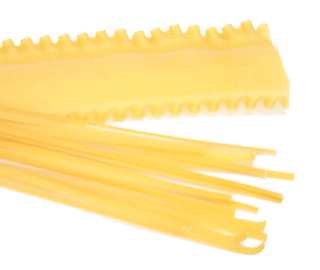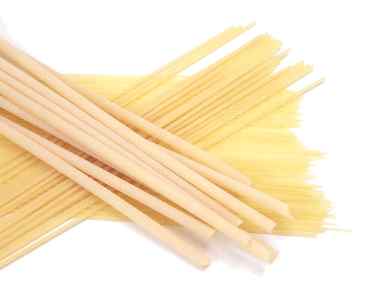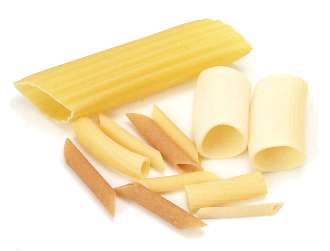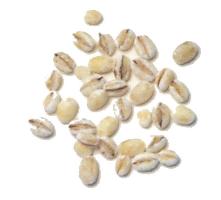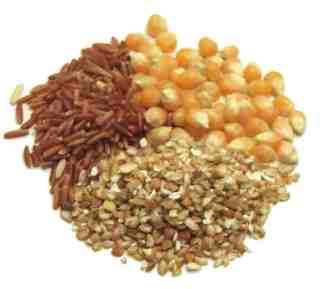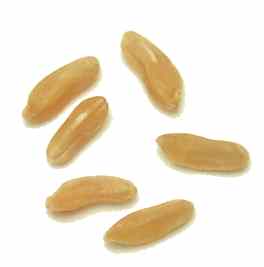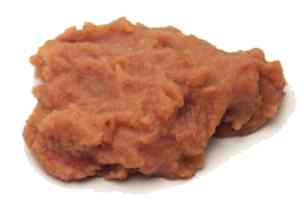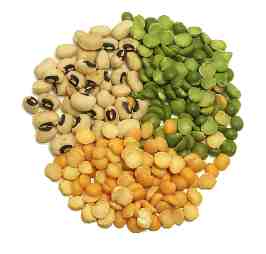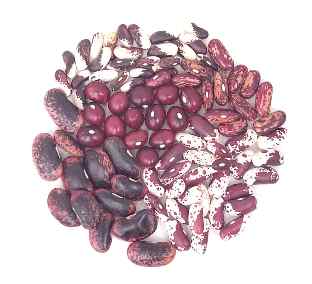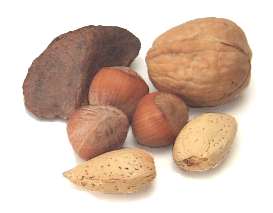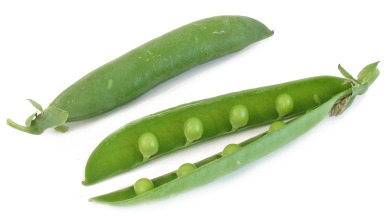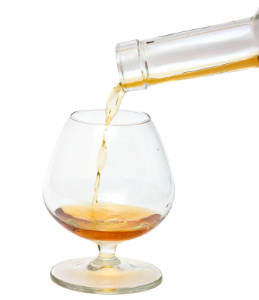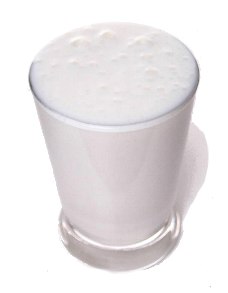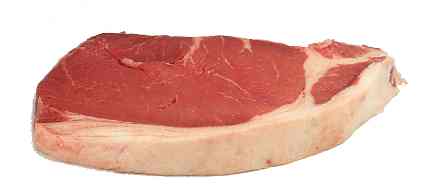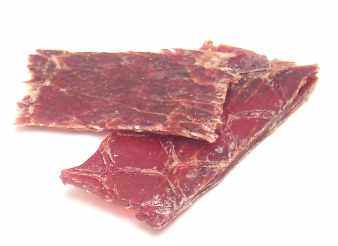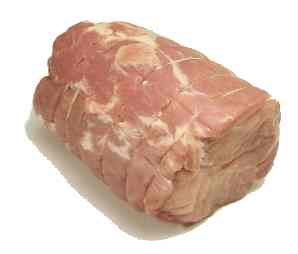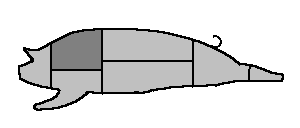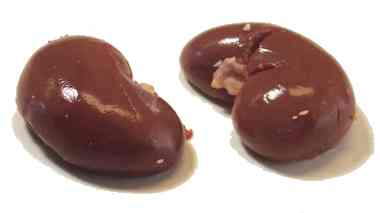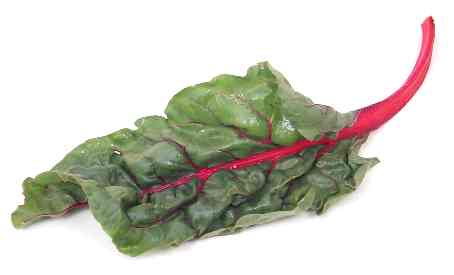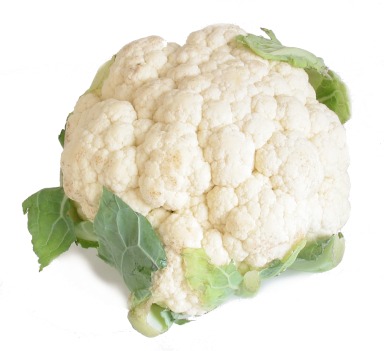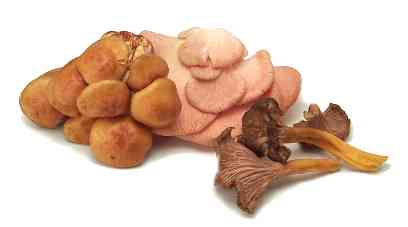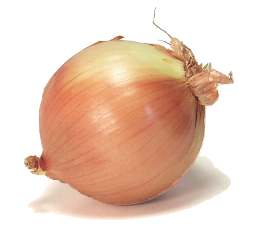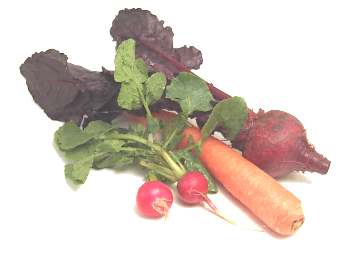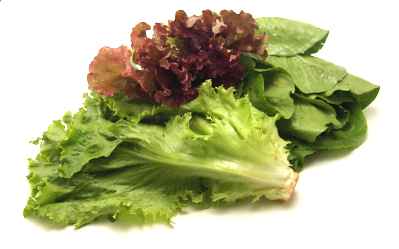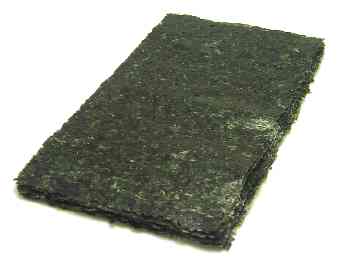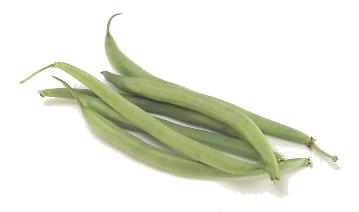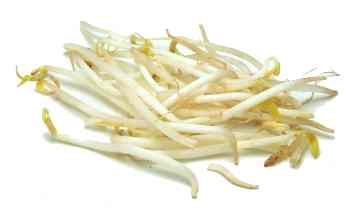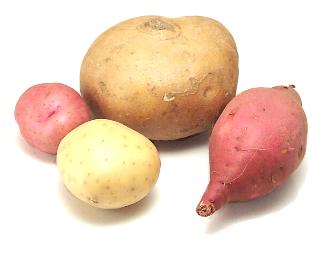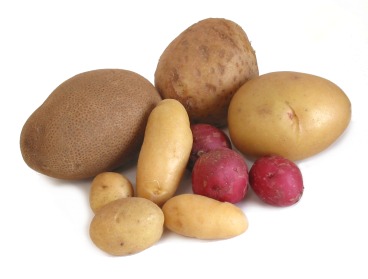All Ingredients
dried cranberries
With their flashy color and tangy flavor, dried cranberries are a good alternative to raisins in many recipes. Craisins is a well-known brand.
Learn moredried fava bean
These meaty, strongly flavored beans have been around for ages, and they work well in sides dishes, soups, or salads. Tender fresh fava beans are available in the fall and are much better tasting than canned, dried, or frozen ones. Cook them before eating. About 400 million people worldwide have favism, an enzyme deficiency. Eating fava beans can cause adverse symptoms in some of them.
Learn moredried fig
These are a great source of fiber and calcium. Varieties include the Black Mission fig, which is a good choice for eating out of hand, and the Calimyrna = Turkish = Smyrna fig, which is best for cooking. If your figs become too dry, you can rehydrate them with water. Don't eat the stems.
Learn moreDried Fruit
Dried fruit is a terrific snack, but cooks also use it in everything from muffins to stews. Drying has the obvious advantage of letting us enjoy our favorite fruit when it's out of season, but it also serves to concentrate the fruit's flavor and sugar. Since high concentrations of sugar ward off bacteria, dried fruit can last up to a year without refrigeration. If you live in a hot, dry climate, you can dry fruit just by leaving it out in the sun for a few days. If not, you can use an oven or dehydrator. Sulfur dioxide is sometimes added to the fruit to improve its shelf life and color. If you're allergic to it, you can usually find unsulfured dried fruit at health food stores. In a pinch, you can remove some of the sulfur by boiling treated dried fruit for a minute or so, then draining off the liquid.
Learn moredried meat
Many dried meats don't need refrigeration, so they're great for backpackers and travelers. They're a good source of protein, but they tend to be high in sodium.
Learn moredried mulberries
These are the size of large raisins, and they taste like very dry figs. Look for them in Middle Eastern markets.
Learn moredried nectarines
These are similar to dried peaches, but often a bit more expensive. They're often treated with sulfur.
Learn moredried peach
These are similar to dried apricots, only larger and milder. They're often treated with sulfur.
Learn moredried pear
These don't have the cloying sweetness of some dried fruits. They're often gassed with sulfur dioxide in the drying process in order to improve their color and shelf life.
Learn moreDried Peas
Like beans, shelled peas are packed with both healthful nutrients and flatulence-producing enzymes. Since the water that you soak and cook the peas in absorbs some of the indigestible sugars that make you gassy, it helps to rinse the peas after soaking, and then use fresh water when you cook them. Split peas don't need to be soaked and cook quickly.
Learn moredrums
This category includes yellowfish = yellow croaker (pictured), corvina = spotfin croaker, drum, redfish = red drum, white sea bass, kingfish, weakfish, and spot. Substitutes: hake (tastier) OR mullet OR tuna OR red snapper OR pompano.
Learn moredry vermouth
Dry means "not sweet", and this popular style of vermouth is used to make many cocktails, including the martini.
Learn moreDubonnet
This is a French apéritif made with white or red wine and flavored with quinine and other herbs and spices. The white version is drier than the red
Learn moreduck
This fatty bird makes a divine roast, but it's hard to cook without setting off the smoke alarm. It helps to pour off the fat while it's roasting. Wild ducks are less fatty than store-bought ducks. A young duck, called a duckling = young duckling = broiler duckling = fryer duckling = roaster duckling, is more tender than an old duck = mature duck. High-fat meats like duck generally should be cooked at a higher temperature and for a longer time than low-fat meats.
Learn moreduck egg
Compared to chicken eggs, these are larger, higher in fat and more colorful, though they have a slightly fishy flavor. They're sometimes contaminated with bacteria, so make sure you cook them thoroughly.
Learn moreduku
Duku fruit are round, tan and 1 to 2 inches in diameter. The hard shell surrounds a soft fleshy sweet and tart thick flesh. They grow in clusters.
Learn moredulse
This is a salty seaweed, so it makes a great salt substitute in soups and stews. Some people eat it raw, like beef jerky. It's rich in iron.
Learn moredumpling wrappers
These thin round wrappers are used to make the delicate dumplings that are so popular at dim sum restaurants. They're made to be stuffed and steamed, but they're not sturdy enough to be fried. While assembling the dumplings, keep the stack of wrappers moist by covering them with a damp towel. You can seal the dumplings with a "glue" made with cornstarch and water. Look for fresh or frozen wrappers in Asian markets. Store them in the refrigerator or freezer, but let them come to room temperature before using.
Learn moreDungeness crab
Found on the Pacific coast, the Dungeness is a large crab highly prized for its sweet meat.
Learn moredurian
The weird and smelly durian has attracted a cult-like following. It's called the King of Fruits by aficionados in Southeast Asia, but Westerners usually don't care much for its mild oniony flavor. Once cut open, the durian eventually gives off such a strong and foul odor that it's banned on Singaporean subways. Look for it in Asian markets. The boiled seeds of the durian are called betons.
Learn moree-fu noodles
These are flat Chinese egg noodles that are formed into round 8"-diameter patties, fried and then dried. Before using, cook them in boiling water briefly, then drain. The noodles can then be added to stir-fries, soups, or salads.
Learn moreedamame
These are fresh soybeans, that are usually sold shelled and frozen, but you can sometimes find them in the produce section, still in their pods. They're rich in protein, fiber, and other nutrients. Fresh edamame pods make great, healthy appetizers. Just steam the pods and have your guests split the pods open and eat the beans inside. Edamame, whether fresh or frozen, is terrific in soups and salads.
Learn moreeel
These haven't caught on much in the U.S., but they're highly prized in Europe and Japan for their rich, firm meat and terrific flavor. Freshness is crucial, so always buy live eels. Smaller eels are more tender. This category includes conger eel = conger = anago, which are tough saltwater eels that are sometimes available in fish markets in the spring and summer, elvers = angulas = baby eels, which are about an inch long and very expensive, and freshwater eel = unagi.
Learn moreegg
One egg contains about one tablespoon of egg yolk and two tablespoons of egg white and weighs about two ounces without the shell. 1 whole egg = 2 egg whites (to reduce fat; may make baked goods less tender) = 2 egg yolks (in sauces, custards, and cream fillings). Eggs come in different sizes. Most recipes assume that you're using large eggs. Also available are reduced cholesterol eggs (sold in the shell), powdered eggs, and liquid pasteurized eggs (sold in cartons). For information about other varieties and forms of eggs, click here.
Learn moreegg barley
These Hungarian dumplings are made of flour, eggs, and water. To prepare them, fry them in butter or lard, then add water to cover. Simmer for about 30 minutes, adding more water if necessary, until the dumplings are soft. Look for packages of them in Hungarian or German markets.
Learn moreegg roll wrapers
The Chinese use these dough squares to make deep-fried egg rolls. While assembling the egg rolls, keep the stack of wrappers moist by covering them with a damp towel. You can seal the rolls with a "glue" made with cornstarch and water. Look for fresh wrappers in Asian markets and many supermarkets. Store them in the refrigerator or freezer, but let them come to room temperature before using.
Learn moreegg yolks
Higher in fat, but increasing the egg yolks in a baked good often makes it moister and more flavorful. Egg yolks make wonderful thickeners--imparting both a rich flavor and velvety smooth texture--but they're tricky to use. You can't just whisk them into a simmering sauce--they'd curdle on contact. Instead, you need to "temper" them by adding some of the hot liquid to the egg yolks, whisking the mixture together, and then adding it to the sauce. To prevent the yolks from coagulating, you need to keep the sauce below 190°, although this rule can be broken if the sauce has a lot of flour in it. Finally, never cook sauces with egg yolks in aluminum pans or they'll turn gray.
Learn moreEggplants
This is a spongy, mild-tasting vegetable that's meaty yet low in calories. It's never eaten raw, but it can be baked, grilled, or sautéed. The best eggplants are shiny, firm (but not too hard), and heavy for their size, with bright green stems and unbroken skin. Smaller eggplants tend to have fewer bitter seeds, as do "male" ones with round scars at their blossom (non-stem) end. (The scars on "female" eggplants look like dashes.) Freshness is important, so don't store eggplants for very long.
Learn moreegusi seeds
West Africans grind these melon seeds into a meal, which they use to thicken and flavor stews.
Learn more











